The first time I saw Castello Scaligero, I found it disconcerting. It was nothing like any castle I had seen before: the wonky, Gothic contours of English and German fortresses, the honey-coloured stone of French châteaux. This castle was all right angles, jutting out into the painfully blue waters of Lake Garda.
The experience made me realise how little I knew about Italy. At the time, I was passing through on a student backpacking trip. We only had one day in Sirmione, and then it was on to the next place. At the end of the holiday, I felt sad. It was like this whole other world had been revealed to me, but I didn’t know whether I’d ever get the chance to explore it. So many other things lay ahead of me: a whole life which could take me anywhere. How was I to know if I would ever come back?
But I did - five years later, with my family. It was as if I’d fallen backwards down a rabbit hole: the first time I visited Lake Garda, I was independent, on the precipice of adult life. Now I was living at home with my parents and brother, and we were all going on holiday together for the first time since before Covid.
We visited Sirmione on a day trip. Not much had changed: a bust of the poet Catullus still greeted us in the harbour. We ate gelato, wandered into old-fashioned stationery shops, sat on the rocky beach and listened to the cool lake water lapping against the shore.
On other days, we visited other towns, each so different from the last that we might as well have been island-hopping. Malcesine had winding cobbled streets and a castle which had once played host to Goethe. An English couple, pink from the sun, were taking wedding photos on the ramparts. Above the town was Monte Baldo, accessible by cable car. The summit was cold, the air crisp, the grass strewn with Alpine flowers. We watched paragliders leaping into space and drifting in circles over the lake.
In Bardolino, my mum and I watched an opera programme and drank red wine and cycled back along the promenade in the dark. Beyond Bardolino, in Lazise, brightly-coloured fishing boats bobbed in the harbour. In the four corners of the church stood statues of the four evangelists, each accompanied by a different creature: an angel, a winged lion, a winged ox, an eagle. They stared at each other in the cool darkness.
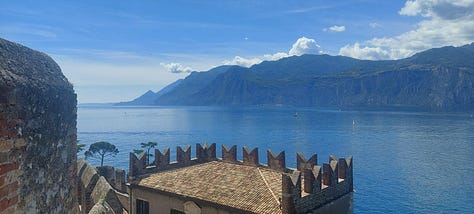
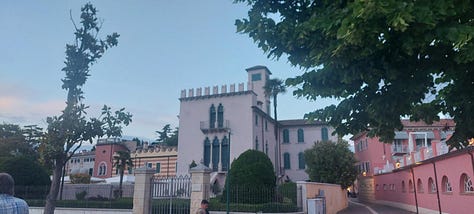
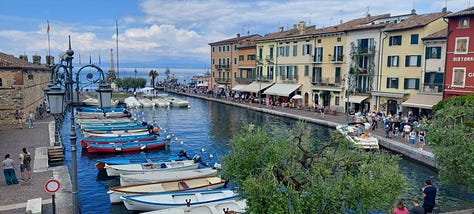
One morning, we joined a ‘slow walking tour’ around the mountain region of Costermano. There were sleepy hillside villages and villas with views of Lake Garda just visible beyond the olive trees. The tour guides brought us to the German Military Cemetery, where the bodies of German soldiers killed in World War II had been gathered from across Italy. They were buried in peaceful rows beneath the blossoming heather. I was amazed that a site of such apparent significance should be hidden up here in the mountains, quiet and undisturbed.
The guides seemed to know everything about this small scrap of land. They pointed out the eagles soaring overhead and the terrapins swimming in the bio-lake that purified the local water supply. They explained that the geology of the area had created the perfect conditions for cultivating the Corvina grapes used in Valpolicella wine. When we visited a local church, they could tell us the provenance of the stone. Passing a mulberry tree, they launched into a discussion of local heritage crafts and the legend of Pyramus and Thisbe.
My youthful desire to know more about Italy seemed suddenly stupid. To uncover the secrets of Lake Garda alone could take a lifetime. But it wouldn’t be a bad way to spend your life.
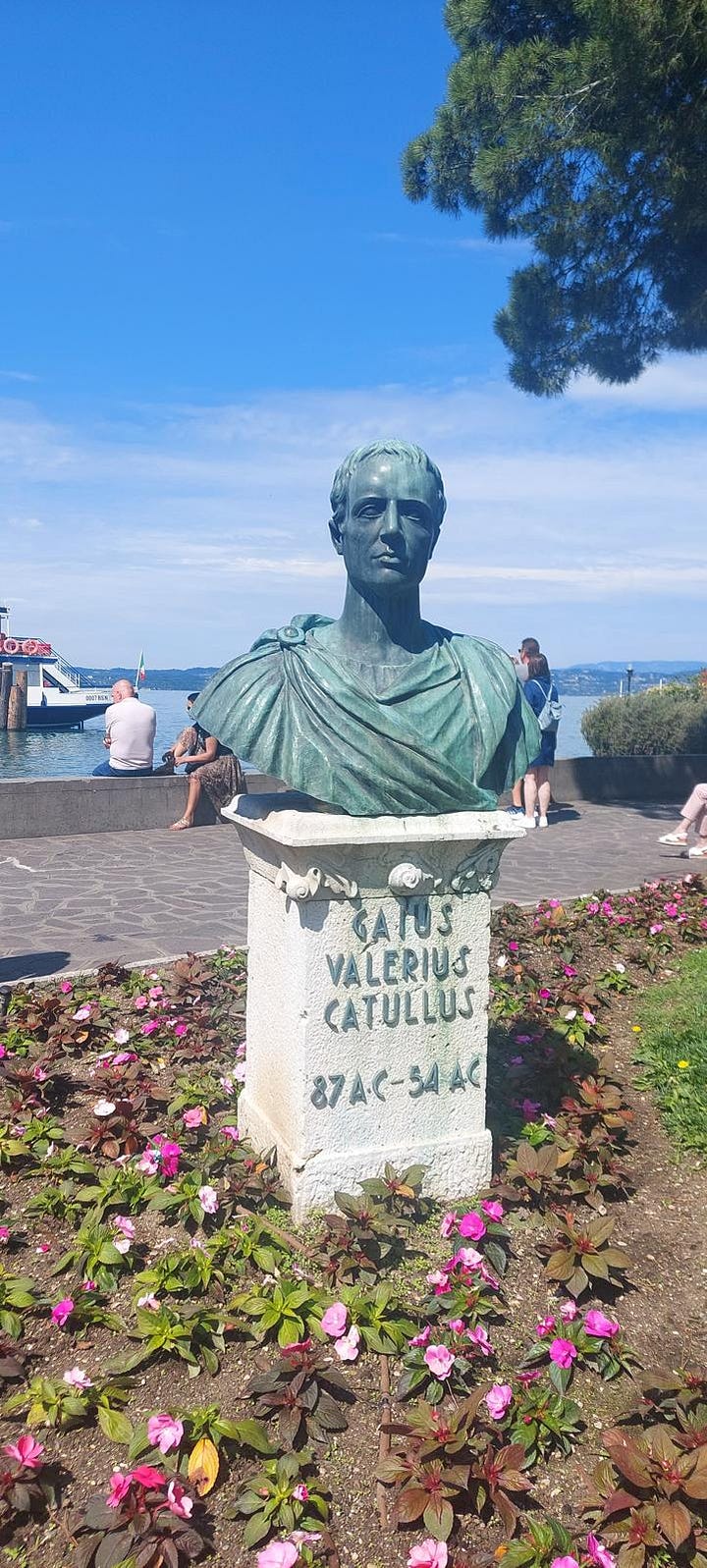
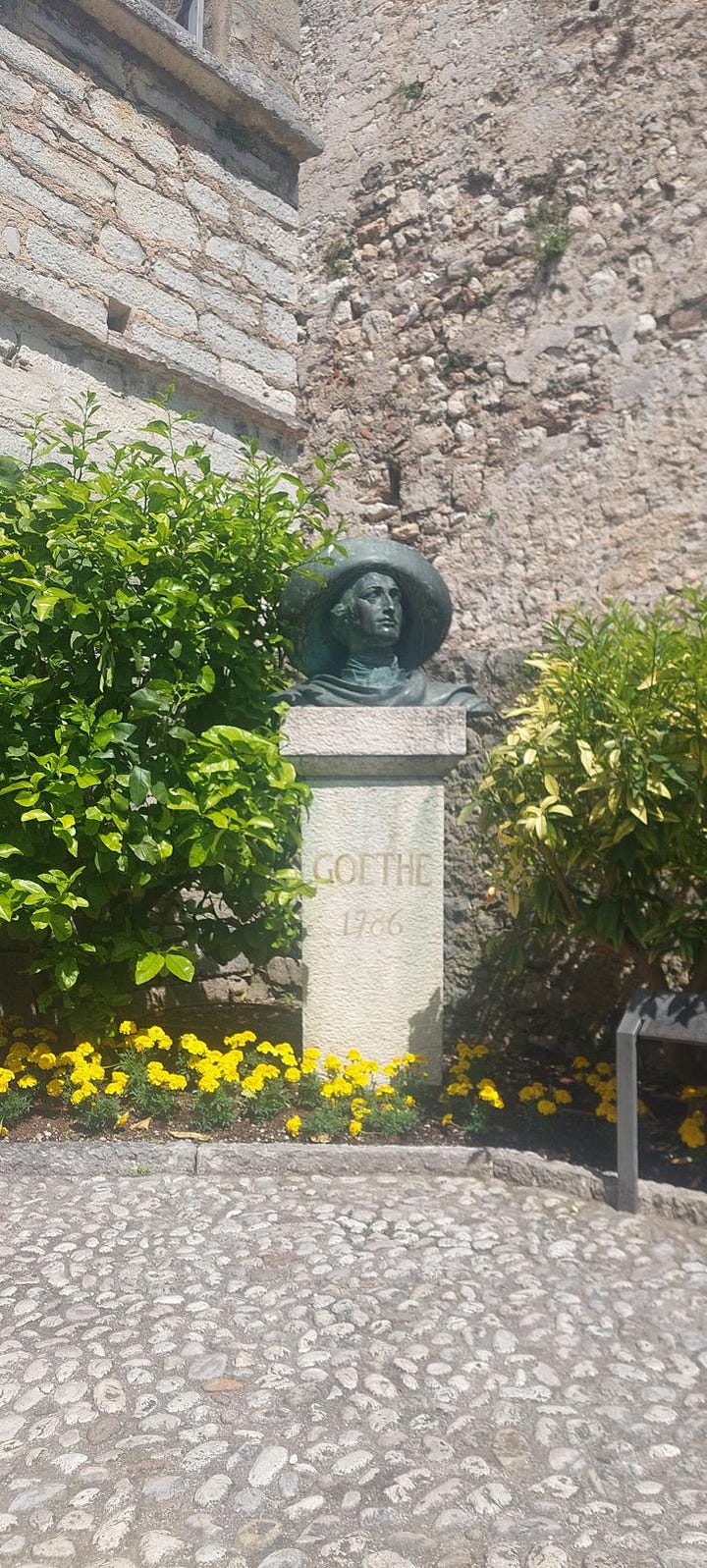
Thanks for reading! For more of my writing, subscribe to Postcards I Never Sent:


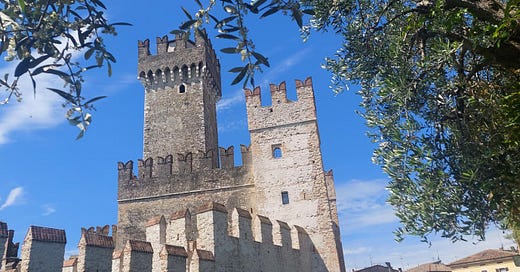



I like Lake Garda. We went there in 2010 (I think) and got the ferry to Sirmione for the day. I'll tell you the 'pedalo rescue' story when I see you next.